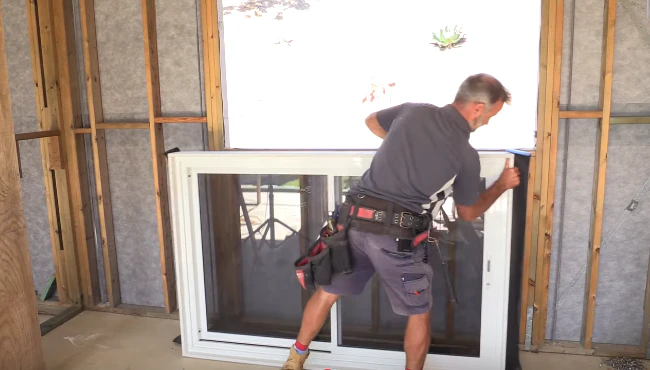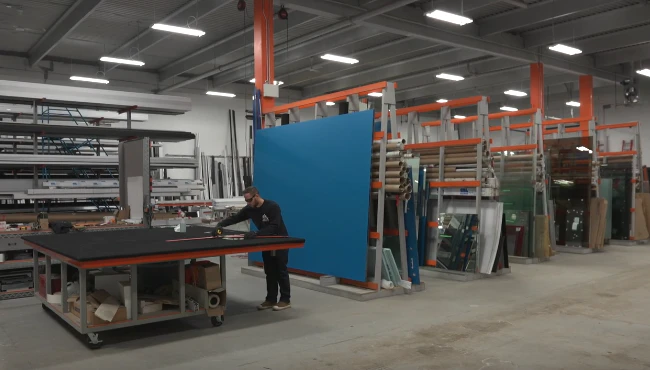What does a maintenance operative do?
A maintenance operative ensures buildings are safe, functional, and well-maintained. Their tasks include repairing plumbing, fixing broken windows, painting walls, maintaining heating systems, and carrying out general inspections. For example, they might fix a leaky pipe one day and install shelves the next. They work in schools, offices, hospitals, and residential buildings, ensuring facilities are in good condition and meet safety standards.
Required skills
A maintenance operative must have excellent problem-solving skills, pay attention to detail and be able to work independently or as part of a team. Good communication skills are essential for contact with customers and colleagues. They should also have a basic knowledge of carpentry, plumbing, electrical work and general repairs. Physical fitness and the ability to handle tools safely are also crucial.

Qualifications
Achieving an NVQ Level 2 in Building Maintenance Multi-Trade Repair and Refurbishment is highly beneficial, as it demonstrates a broad range of skills employers value. Possessing a Blue CSCS card or Gold CSCS card is an advantage because it proves you have the required qualifications, experience, and safety training to work on construction sites, opening more job opportunities.
Benefits
A career as a maintenance operative offers variety, job security, and opportunities for growth. You’ll gain satisfaction from solving problems and ensuring buildings run smoothly. Many roles offer flexibility, including full-time or contract-based work. You can work in various sectors such as healthcare, education, or housing. Competitive pay and the chance to develop a diverse skill set are added benefits.
Challenges
Maintenance operatives may face unpredictable schedules due to emergency repairs, like fixing burst pipes or broken boilers. Some jobs may require working in confined spaces or at heights. Balancing multiple tasks while meeting deadlines can be stressful. However, strong time-management skills and experience help overcome these challenges.
Career path and progression
With experience, a maintenance operative can progress to supervisory or managerial roles, such as Facilities Manager. You might specialize in areas like plumbing or electrical work, or even start your own maintenance business. Gaining additional qualifications and certifications will enhance your career prospects and earning potential.
Statistics
Maintenance operatives in the UK* – Prognosis
Average Annual Increase
ARR**
SOURCE: CITB ” Labour Market Intelligence Report (2024 – 2028)”.
* These prognosis calculations assume constant ARR and growth rate without significant external disruptions.
** ARR – Annual Recruitment Requirement is a metric used to estimate the number of new workers needed annually to meet labour market demands in a specific industry, region, or occupation.
How much could you earn as a maintenance operative
Maintenance operatives in the UK earn varying wages based on experience and employment status. Entry-level employed workers earn around £13.64 per hour (£26,597 annually), while experienced ones can earn up to £15.26 per hour (£35,000 annually). Self-employed individuals charge approximately £15 per hour, with daily earnings ranging from £120 to £176, depending on experience and location.
*Information sourced from reputable recruitment sites and agencies, reflecting the latest job market insights and trends. Figures can vary based on factors such as specific job requirements, individual qualifications, and regional economic conditions. Additionally, self-employed professionals should account for expenses such as tools, materials, insurance, and transportation when calculating their net earnings.
Typical hours per week
Standard work hours per week
(Employed)
Working hours per week with overtime
(Employed and Self-employed)
Maintenance operatives generally work 37.5 to 40 hours per week, usually Monday to Friday. However, some roles may require weekend or evening work, particularly for emergency repairs. Overtime opportunities are often available, providing extra income.
Conclusion
Becoming a maintenance operative is an excellent career choice for those who enjoy hands-on work and problem-solving. It offers job variety, opportunities for growth, and a steady income. With the right skills and qualifications, you can build a rewarding and secure future in this field.

